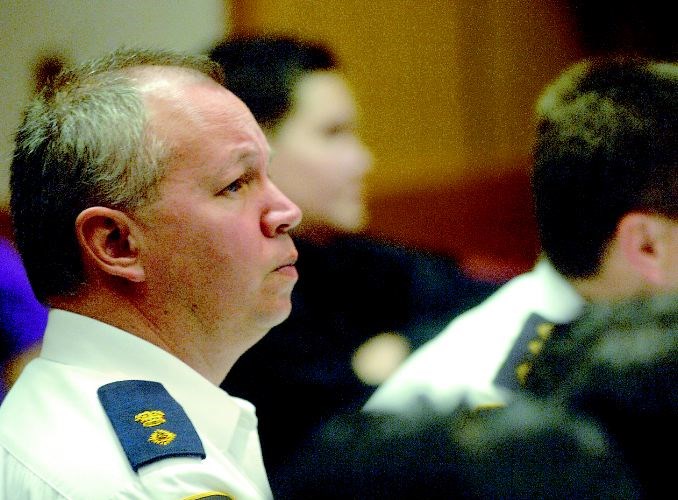It was suggested first in 2008 that the government pay for a Kindergarten program across the province for children aged three and four - all day, every school day.
It would be an optional program, and it would build on the work already underway with StrongStart Centres, and all-day kindergarten for five-year-olds that started this year and will be completely phased in next school year.
The concept was championed by the Minister of Education of the day, Prince George MLA Shirley Bond. It was touted at the outset as being an education readiness program, a manoeuvre towards boosting core education skills.
However, in subsequent discussions with The Citizen, Bond acknowledged that it was as much about breaking the hold of gangs and shattering cyclical family dysfunction. This echoed through the Ramada ballroom during Monday's organized crime summit, as speaker after speaker took the stage to stress the importance of education and early intervention as the main antidote to kids winding up in gangs.
"According to a very new study by the Vancouver Board of Trade, for every dollar invested in early childhood education, the province would save $17 in future social costs," said Bond at the time. "When I look at how we are going to improve the success of student outcomes in B.C., I have become increasingly convinced that the answer lies in early education. This is also, though, about freeing up families to make choices."
"It is a positive start, as far as I am concerned," said police Sgt. Shinder Kirk of the Combined Forces Special Enforcement Unit. "It is better than having a mother on crack smoking drugs around her kids, passing out and leaving her kids to fend for themselves. It is better than having a violent father or boyfriend have all-day access to that kid, if there is an alternative place for that child to go."
Gang expert Mark Totten also applauded the idea. "It would be great especially for single parents," he said, noting that even kids in homes without drugs or violence could be better off in a free-of-charge school environment, instead of haphazard daycare arrangements. "You have to have certain standards of care, of course, and it should also be de-stigmatized. Is there a way to have a breakfast program? Can there be busing so those parents get their kids to school for this?"
Bond admitted the plan, if it goes ahead, would be costly up front. Curricula would need to be established, classroom resources identified, purchased and distributed and early-childhood educators hired. She said counterbalance money would be freed up in other ministries.
Bond is no longer the minister responsible and has not been for some time, but the steps laid out for this plan have nonetheless come to pass. When then-minister Margaret MacDiarmid met with The Citizen at the Union of B.C. Municipalities conference this fall, she was asked about the status of the plan and although she said she could provide no inside information at that time, it was not off the table.
The latest education minister is cabinet veteran George Abbott, only a few days in the job, and he will be queried in short order about where those plans currently sit.



